What’s in a Name?
Naming your characters can sometimes take as long as figuring out the plot. I always want the character name to have some reflection on the personality of the character, but it doesn’t always work out.
My Rocky Bluff P.D. series began years ago and though I was definitely concerned about picking out the perfect names for each of the characters, at that time I didn’t even consider that I shouldn’t have main characters whose names begin with the same letter. Now I’m stuck with some of them. For instance, my main detective—who was a street cop in the first and second books—is named Doug Milligan. His partner is Frank Marshall, making them Detectives Milligan and Marshall. Frank is getting close to retirement so once that happens the problem will be solved.
Another thing I’ve noticed is that for the sympathetic characters I seem to pick names of people that I really like. Of course not the whole name, but I’ve always loved the name Douglas and knew I had to use it for a hero type one day. I have a cousin and nephew named Doug. In face, with a family as big as mine, it would be impossible to avoid any of their names.
In the beginning, I hadn’t really thought much about the names for minor characters. And when Stacey Wilbur first made her appearance in Rocky Bluff, she was not that important. I’m not crazy about her name, though I’m certainly used to it by now because she’s become a major character and especially in Angel Lost as she’s preparing for her wedding to Doug Milligan. (Sometimes I feel the same way about the names my grandkids have chosen for their children but once they arrive the names seem to fit–and It’s kind of that way in my books too.)
When I was choosing names for my Deputy Tempe Crabtree series, I wanted my heroine who is part Indian, to have a name that sounded Native American. I chose to use my own great-grandmother’s name because I thought it fit the character. (And the first Tempe Crabtree has been long gone so I knew she wouldn’t mind—and the relatives who actually read my books think it’s great to have great-grandma immortalized, so to speak.) Another major Indian character is Nick Two John. I heard the name Two John and thought it would be a good one to use for Tempe’s friend who has educated her about her Native American heritage. My latest in this series is Invisible Path.
All the real-life Indians I know have quite common American sounding names and many others have Mexican roots. In fact, I try really hard not to use any of the family names of the Indians who live on the nearby reservation.
I collect names. Keeping graduation and play programs has also helped. I like to find a first name that’s unusual, fits the character, and then look for a last name that goes with the first name. Sometimes I’ll see a name in credits for a movie that I might use sometimes and quickly jot it down.
When I worked in day care, some of the girls had the most unusual first names—ones it took me a while to remember—and I wrote those down. And yes, I’ve used some in different books I’ve written.
I recently read a teen book called “Prom and Prejudice” (was really fun and guess what it was based on) and the main hero’s name was Darcy. Some names are so connected to books and movies—think Rhett. Would you name a hero Rhett? Probably not, unless there was a good reason for it.
For you writers out there, how do you go about picking names for your characters? And you readers, how important is a character’s name to you?
Marilyn a.k.a. F. M. Meredith

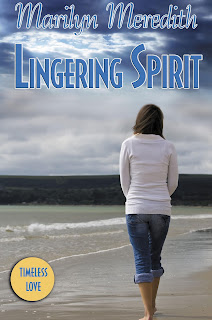
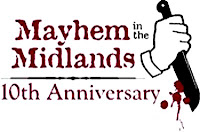

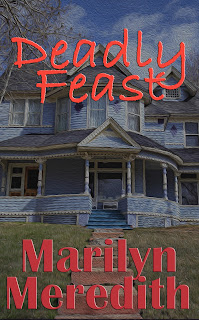
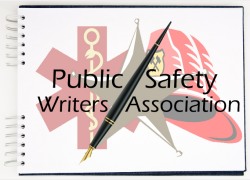
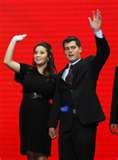
Names are so difficult! I'm attracted to simple names in real life and tend to give them to my characters, although I have to admit, an unusual, well thought out name can really add more "character" to the character:)
Names can be difficult, but when I find the right one it's a Eureka! moment. I use the same baby name book that I did with my kids. It's so worn you'd think I have 40 children!!
Interesting post! I gave my main character a name common in her area of Ontario, but then set the story in Vermont. I gave some of the characters names derived from the French influence in the area. The books, Murderous Roots, and The Facepainter Murders, have a genealogical "hook" so names and the locations have a close relationship.
(Both books available at Amazon and the publisher Write Words Inc.)
I tend to choose certain letters and similar names and really have to think and peruse name books and sites as I develop new characters. Sometimes a name just comes to me, but sometimes the 'right' one is more elusive.
I agree that names are SO important. In my new Magical Dressmaking series, I have also used quite a few family names! Kind of makes the people long gone in my family, whom I never knew, a bit more real to me.
Maria, I kind of like unusual names as long as they are easy to pronounce. Though I tend to give minor characters the more common names.
Laura, a baby book is a good idea and you can go on line to find names for babies too.
I like what you've done too, Virgina. Using names common to a place works too.
Misa, I know some people keep charts of all the names they are using not to have similar sounding or rhyming names or names starting with the same letter.
Gee, and here I thought you were plugging my book, which is called "What's in a Name?" 🙂
I keep a spreadsheet so I don't fixate on a particular letter, and I'll Google for popular names so my characters' names match their ages.
One piece of advice I got from a writing professor was, "Your characters' names should sound like their parents named them, not like you did."
Terry
Terry's Place
Romance with a Twist–of Mystery
Hi, Terry, you're the second author I know who uses a spreadsheet. I'm sure it helps. And the advice that the names sound like the parents named the characters is really good.
Marilyn
Marilyn, what a fun post! Naming characters is a real gut-feeling kind of thing with me. Sometimes the name is just there, and that's nice when it happens. Other times, I have to think about it, but I know when it's right.
Someone I know names characters by taking the last couple days of newspapers and picking random first names and matching them up with random second names of people who've been named in the paper. It works amazingly well, I think. Some of the names generated this way are terrific and there's room to play with them a bit.
Keeping track seems less of an issue to me, but a spread-sheet or any searchable list/table seems smart if you're concerned about it.